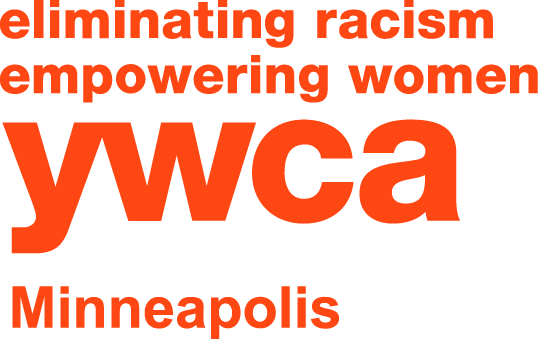YWCA Stand Against Racism 2017 – Women of Color Leading Change

Tell us a little about yourself and what you’re passionate about.
Tiffini: I have been involved in Minneapolis and Minnesota politics for years and have stepped forward because I have not seen enough being done about job creation, raising the minimum wage and creating safe streets for our residents. I have seen how these issues disproportionately affect people of color and women. I am an active advocate. I have participated in marches, spoken at the Capitol and challenged our courts.Eva: I am a proud Southside Minneapolis resident. I am a friend, daughter, sister, wife, advocate and politically active voter. I identify as Black and Jewish and work for a non-profit agency which operates Head Start and Early Head Start programs for more than 2,500 families in Hennepin County. I am passionate about ensuring every child and family is granted the opportunity to succeed in this life regardless of their socioeconomic status, geographical location, race or creed.
How do you see institutional and systemic racism impacting your work and communities, especially in early childhood education?
Tiffini: I have personally been a family service worker for Early Head Start and subbed for the High 5 Program through Minneapolis Public Schools. The goals of both programs are to have children kindergarten-ready to alleviate the opportunity gap that exists, and neither of them have had a substantial impact.I have degrees in Early Childhood Education and Child Development. Both programs are dominated with white staff and white enrollment. This does not reflect the population of the community served.Eva: I think about institutional and systemic racism every single day. I contemplate how we can dismantle these oppressive systems. It devastates me that Minnesota continues to have some of the worst racial disparities in the entire country. We have made improvements over the years, but we still have a lot of work ahead of us.In order to close the opportunity gap we need to push for equity in affordable housing, education and healthcare. Research shows that the return on investment for early childhood education is one of the greatest investments we can make. However, it continues to be underfunded. As a result, our most vulnerable families in the community face extreme hardship when it comes to finding affordable, quality care for their children.

How has participating in the CARE Fellowship impacted you?
Tiffini: The CARE Fellowship gave me the tools needed to lobby, educate and make legislators aware of the issues that were unfunded within the early childhood programs most at need.Eva: The CARE Fellowship helped me gain a better understanding of the history of early childhood education as it pertains to public policy. It also gave me the opportunity to interact with early childhood education professionals across Minnesota. Working in an urban environment is much different than what my peers in Northern Minnesota experience. Sharing stories and learning from each other helps create a unified approach in our goal to ensure every child has a chance to succeed.
Why is it important for women of color to be leading change in our society?
Tiffini: It is inevitable that women of color will lead. We seem to be at a cusp where women of color are climbing the ranks, never fast enough, but it is happening. There are still many barriers to bring down. Women of color cannot only lead change, our pictures and accomplishments must be visible to the public. Those who follow us must actually see our faces. I feel this part of the movement is overlooked.Eva: History has shown us that women of color and Indigenous women are powerful and brave beyond measure. Not necessarily because we want to be but rather because we have had to embody those characteristics to survive and thrive in this world. I am proud of the many women of color who have bravely entered into various political races. I am proud of the work that is going on across various organizations to mobilize communities of color and get everyone involved.
How do you think voter turnout impacts leadership?
Tiffini: There are too many leaders talking about a woman governor or president as the end goal. I do not see enough women of color at our caucuses. Many issues do not have the input of the people most affected, which is a large problem I hope to correct.Eva: The time is now. We are seeing legislators create policy with zero input from the communities who are being impacted – mainly communities of color. We have to show up and speak with a unified voice opposing all systems of oppression.Combating racism is challenging, exhausting and painful at times. Sometimes I am the only person of color in a room and something is said, or left unsaid, that perpetuates racism and systems of oppression. It is in those exact moments I pull strength from this quote: “Stop asking for permission. Stop apologizing. Take up space. Trust your gut. Get loud. Be real. Do the dang thing.” I hope this quote pulls courage out of other women of color who are not waiting for a seat at the table, but rather, are boldly pulling up their own chair.
